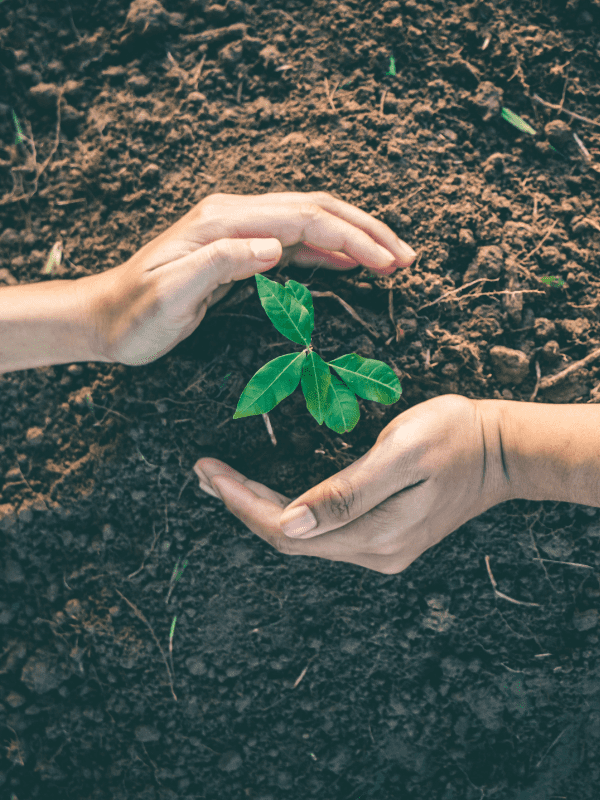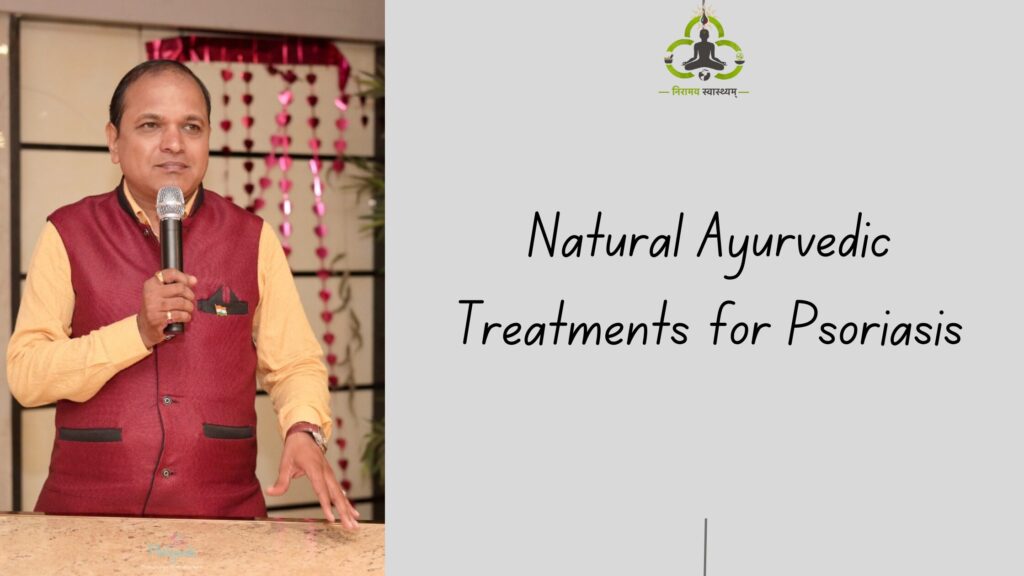For people who are seeking for natural and holistic approach to Psoriasis, ayurveda offers a tested solution. Psoriasis is a chronic skin condition by an imbalance of Vata and Kapha. There are several studies which proven Psoriasis Treatment In Ayurveda. In addition, Dr. Yogesh Vani is an Ayurvedic expert who can help you get the right types of Psoriasis disease treatment in Ayurveda. Let’s understand Psoriasis and its Treatment In Ayurveda for long-term benefits.
Understanding Psoriasis: A Comprehensive Guide
Psoriasis is a serious skin condition in which skin cells proliferate and result in thick scaly patches over the skin known as plaques. Psoriasis can appear on various parts of the body, though it is most commonly found on the elbows, knees, scalp, and lower back. While the exact cause of psoriasis remains unknown, it is often attributed to factors such as genetics, eating habits, or environmental influences.
For those seeking alternative remedies, Psoriasis Treatment in Ayurveda offers a holistic approach that addresses the root causes and aims to balance the body’s internal systems. Let’s know about it in detail-
What is Psoriasis?
Psoriasis is known to be a chronic skin condition with red rashes, and itchy and painful patches on the skin. It results due to increases in the growth cycle of skin cells. The skin cells usually grow and shed in 28 to 30 days in healthy people. It is a process that can be completed in just 3 to 4 days which leads to an accumulation of cells on the skin. This rapid increase causes thick, red, and scaly patches known as plaques. It can be itchy, etc, and sometimes there is bleeding too.
Psoriasis can occur anywhere on the body, But mainly, it is seen on the elbows, knees, scalp, and lower back. Remember, this condition may vary from person to person. While some individuals may experience mild patches, others may have experienced extensive exposure that affects their quality of life.
Psoriasis is not transmittable and cannot be spread from person to person. There are many types of psoriasis conditions, while plaque psoriasis is the most common. There can be other forms of Psoriasis which include guttate, pustular, inverse, and erythrodermic psoriasis. Right now, there is no treatment available for psoriasis. However, various treatments are available to help cure symptoms and enhance the quality of life of the affected people.
Understanding Psoriasis Treatment in Ayurveda
According to the Ayurveda-traditional Medicine System, psoriasis is a serious skin condition that occurs due to the imbalance in the body’s doshas, known as Kapha and Pitta. The imbalance of Kapha and Pitta affects the skin condition and results in redness or scaling of a particular area of the skin.
Ayurveda suggests balancing these doshas by controlling eating habits, herbal cures, and a healthy lifestyle for Psoriasis Treatment. It provides effective remedies through medically rich herbs like Guggul. Turmeric, Neem, and Aloe Vera clean the toxins from the body and balance the dosha.
Ayurvedic Perspective on Psoriasis
From the Ayurvedic perspective, psoriasis is due to an imbalance in the body’s “doshas”, particularly the Pitta and Kapha doshas. Psoriasis is categorized under the term “Kushtha,” which means rare skin-related diseases in Ayurveda. The condition arises due to the accumulation of toxins (ama) in the body, which leads to inflammation and skin problems.
As per the Ayurvedic principles, the imbalance of doshas may result in excess heat (Pitta) and moisture (Kapha) which contributes to the development of psoriasis plaques. Kushtha chikitsa is effective in the Kushtha skin condition. But for Psoriasis- a complex skin condition, Jirnajwara chikitsa, Vatarakta chikitsa, and Rasayana chikitsa along with Kushtha chikitsa have been used.
Root Causes of Psoriasis in Ayurveda
Ayurveda mentions several root causes that may result in the development of psoriasis:

Imbalance of Doshas
Excess of Pitta and Kapha doshas can result in inflammation and skin problems. This condition may arise from incorrect food habits, stress, and less physical activity.

Dietary Factors
Eating excessive spicy or oily foods can increase Pitta dosha, which results in skin inflammation. You can avoid toxins by taking a diet comprising fresh fruits, vegetables, and whole grains.

Lifestyle Choices
Modern lifestyles and incomplete sleeping routines can disturb the natural balance in the body which can cause increased stress and inflammation.

Emotional Stress
Ayurveda mentions the connection between emotional and physical health. The symptoms that arise due to this can be stress and anxiety.

Environmental Factors
Exposure to harsh chemicals, pollution, and weather conditions can start psoriasis-related issues.
Ayurvedic Treatment for Psoriasis
Ayurvedic psoriasis treatment brings doshas balance to the body as well as eliminates toxins. The following process used for psoriasis:
Herbal Remedies
For psoriasis, ayurvedic treatment by various medicinal plants such as guggul, neem, turmeric, and aloe vera is recommended because they are immune-booster, anti-inflammatory, and healing qualities. These plants can be applied to the skin or consumed to reduce symptoms.
Dietary Changes
It is important to have a balanced diet that contains fresh fruits, vegetables, and whole grains. Likewise, it is important to avoid spicy and oily foods that can reduce inflammation and maintain skin health.
Panchakarma Therapy
Panchakarma Therapy is a detoxification process that includes different treatments designed to cleanse the toxins from the body and restore balance. It includes massages, and herbal and steam baths.
Ayurvedic Treatment Approaches for Psoriasis
The Process of Ayurvedic treatment for psoriasis includes therapies customized to the individual’s conditions. Some of the methods of psoriasis treatment are:
Topical Treatments
There are some plant-based pastes and oils made out of ingredients like winsoria(Winsoria is a genus of land planarian belonging to the family Geoplaninae.), neem, and turmeric to be applied to the affected areas to cure inflammation.
Internal Remedies
Ayurvedic experts may prescribe herbal formulations to detoxify the body and balance the doshas. These remedies include a mix of herbs that have anti-inflammatory properties for the skin and boost the immune system. It is also important to boost the immunity to fight the disease.
Yoga and Meditation
Adding yoga and meditation to daily life can help you to overcome stress and developmental well-being.
Regular Consultations
Vaidya Yogesh Vani – Ayurvedic practitioners with more than 5 years can help monitor progress and suggest treatment plans. You can book your consultation.
Panchakarma Therapy
Panchakarma is an effective Ayurvedic treatment which has been used for years. It is the process of detoxifying the body and restoring balance. This therapy has five key procedures that eliminate toxins and restore the body.

Vamana (Therapeutic Vomiting)
Exposure to harsh chemicals, pollution, and weather conditions can start psoriasis-related issues.

Virechana (Purgation Therapy)
Virechana method uses herbal laxatives to clean the intestines and control excess Pitta. Virechana helps to eliminate toxins from the digestive tract and clean the body. Hence, it results in improving skin inflammation issues.

Basti (Enema Therapy)
Basti therapy involves managing herbal enemas to clean the toxins. This treatment is effective in balancing Vata dosha to cure the digestive system.

Nasya (Nasal Therapy)
In Nasya therapy, herbal oils are used through nasal passages to clear sinuses and cure respiratory issues. This therapy improves overall well-being and reduces stress.

Raktamokshana (Bloodletting)
The Raktamokshana process purifies the body and is beneficial for skin conditions like psoriasis as blood purification is important.
Herbal Remedies
Ayurveda provides some herbal cure for psoriasis, which includes:
Neem
Neem is a famous herb with anti-inflammatory and antibacterial properties. Neem can be used as a supplement to reduce skin irritation.
Turmeric
Turmeric has an active ingredient called Curcumin which has potent anti-inflammatory properties. It can be mixed with spices while cooking the food or can be taken as a supplement.
Aloe Vera
Aloe vera plant is already being used to hydrate and can cure many skin issues including Psoriasis.
Other Herbs
Likewise, capsaicin, Oregon grape, apple cider vinegar, tee tree oil, etc are also effective in lowering the symptoms of psoriasis.
Dietary Recommendations
Diet plays a special role in helping psoriasis conditions. Ayurveda approves some dietary recommendations for psoriasis which include:
Anti-Inflammatory Foods
Include foods rich in omega-3 fatty acids, for example, fish, walnuts, and flaxseeds to reduce inflammation.
Avoiding spicy and oily Foods
You must avoid spicy and oily foods, as they can develop the symptoms.
Staying Hydrated
Drinking lots of water. So, water dilutes the toxins and keeps the skin moisturized throughout the day.
Lifestyle Modifications
Lifestyle modifications are essential for managing psoriasis effectively. Key recommendations include:
Regular Exercise
Regular Physical activities reduce stress and improve blood circulation to benefit skin health.
Stress Management
You must practice yoga and meditation to help manage stress.
Adequate Sleep
You must have a proper sleeping routine to ensure you sleep well and allow the body to heal by itself.
With the combination of Panchakarma therapy, herbal remedies, dietary changes, and lifestyle modifications, Psoriasis Treatment in Ayurveda offers an effective approach to managing psoriasis conditions and enhancing your quality of life. The holistic approach of Ayurveda provides a natural way towards healing and well-being.
Scientific Evidence Supporting Ayurvedic Treatments
According to Ayurvedic theory, Psoriasis is linked with the imbalance of two doshas named Vata and Kapha. There are several studies and scientific evidence that support Ayurvedic treatment for Psoriasis. According to studies, just using Ayurvedic herbs is not enough. A balance of natural remedies, a healthy diet, and a better lifestyle give a promising Psoriasis result.
Case Studies for Psoriasis Treatment In Ayurveda
According to the “Journal of Ayurveda and Integrative Medicine,” study shows that a patient with chronic plaque Psoriasis improves the disease with a combination of Ayurvedic treatments, including internal medications, topical applications, and Panchakarma therapies.
Patient Information
A 68-year-old woman who has plaque psoriasis. She is suffering from red rash itching, burning, and Auspitz sign. She underwent allopathic treatment for three years but there was no positive result.
Therapeutic Interventions
As plaque psoriasis is a serious condition. Multiple ayurvedic treatment approaches are used for her like Jirnajwara chikitsa, Vatarakta chikitsa, and Rasayana chikitsa along with Kushtha chikitsa.
Ayurvedic Treatment Protocol
A combination of herbs is used. Below are the effective treatment remedies-
- Patolakaturohinyadi kashaya (Herbal decoction)- 20 mL, twice daily on an empty stomach for 6 Months
- Kaishor guggulu (Tablet)- 1 gm, twice daily after meal for 6 Months
- Mahatiktaka Ghrita (Capsule of medicated ghee)- 2 gm, once daily on an empty stomach for 6 Months
- Gandhaka rasayana (Tablet)- 250 mg, twice daily after meal for 6 Months
- Khadirarishta (Herbal fermented liquid)- 20 mL, twice daily after meal for 6 Months
Topical Application
With oral treatment, a topical ayurvedic formulation is also applied.
- Winsoria oil (Herbal coconut base oil)- Twice a day for 1 Year in affected areas.
Panchakarma Therapy
For any Ayurvedic treatment, detoxification is the central part. Patients were put on a Strict dietary plan like no use of salt, sour food items, curd, old butter, milk, sweet products, meat and fish, overeating, etc. for 2 years. Patients need to follow this therapy for 1 year during treatment and 1 year after treatment.
Result
The patient reported significant improvement in their symptoms, including reduced scaling, itching, and redness. A regular follow-up is followed by the researcher during the treatment process. After 8 follow-ups and 1 year of treatment, there is no relapse in any signs and symptoms seen in the patient.
Why Choose the Ayurvedic Treatment for Psoriasis
There are many ayurvedic remedies for psoriasis treatment and are holistic & natural approaches to managing diseases or chronic conditions. Choosing a ayurvedic treatment for Psoriasis offers several benefits –
Natural and Safe
Herbal & Natural Remedies
Ayurvedic treatments are completely based on herbal and natural remedies. There are negligible chances of adverse effects. It naturally improves or causes Psoriasis by boosting immunity and skin condition.
Detoxification
Ayurvedic treatment is also focused on detoxification of the body. Panchakarma is an effective detoxification therapy in Ayurveda. It eliminates toxins and is effective in Psoriasis symptoms. In addition, it improves the effect of herbs and plant-based remedies.
Holistic Approach
Body-Mind Balance
It is said that Psoriasis is an imbalance of Kapha and Pitta. Ayurveda-traidtional medicine system brings imbalance in all the doshas. It improves physical, mental, and emotional aspects of health.
Long Term Benefits
Sustainable Relief
Ayurvedic treatment is focused on long-term benefits. It is not like allopathy or homoeopathy. Psoriasis improved by ayurvedic treatment gives long-term benefits as well as promotes overall well-being.
Quality of Life
Psoriasis patients or other patients who undergo Ayurvedic treatment are reported to have a better quality of life. Improve skin health, lower stress, enhance immunity and improve overall health.
Evidence-Based Efficacy
Scientific Evidence
Several studies reported that using ayurvedic treatment for Psoriasis gives effective and long-term results. Scientific studies of the effectiveness of ayurvedic treatments increase day by day.
Case Studies
Several documented case studies also show improvement in Psoriasis patients with ayurvedic treatment.
Customised Treatment
Personalized Care
Ayurveda is based on an individual’s dosha type, lifestyle, or severity of the problem. Ayurvedic treatment is personalized according to the patient and addresses the root cause of the problem.
Dietary and lifestyle adjustment
Ayurveda supports improving the diet and lifestyle to treat Psoriasis. Patients are advised to avoid certain foods and lifestyles during the Ayurvedic treatment.
Frequently Asked Questions
In psoriasis treatment in Ayurveda, a blend of herbal remedies, detoxification, diet, and lifestyle changes balances the doshas. This holistic approach helps eliminate toxins and shows positive results in improving skin conditions.
Most of the common herbs used for psoriasis are guggul, turmeric, neem, etc.
Panchakarma is an Ayurvedic detoxification therapy. Panchakarma therapy wards off the toxins and impurities from the body and restores the dosha balance in the body.
Using herbs or ayurvedic treatment does not give side effects. There are negligible chances of side effects of using herbs in psoriasis treatment.
If you are on ayurvedic psoriasis treatment, then avoid dairy products, sugar, fried items, and many more. Consult with your health practitioner.
The cost of ayurvedic psoriasis treatment varies according to the treatment plan, duration of treatment, and experience year of practitioner.
Turmeric is an anti-inflammatory and antioxidant property that helps to lower the effect of psoriasis and improve the skin condition.
According to several studies, winsoria oil, Karanja oil, etc are effective ayurvedic oils for psoriasis.
Yes, it is advisable to consult an Ayurvedic professional for psoriasis. You can contact our top psoriasis treatment specialist, Dr. Vaidya Yogesh Vani.



